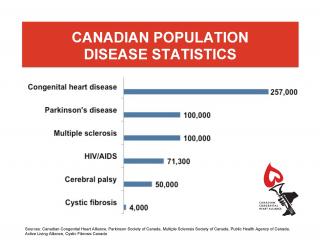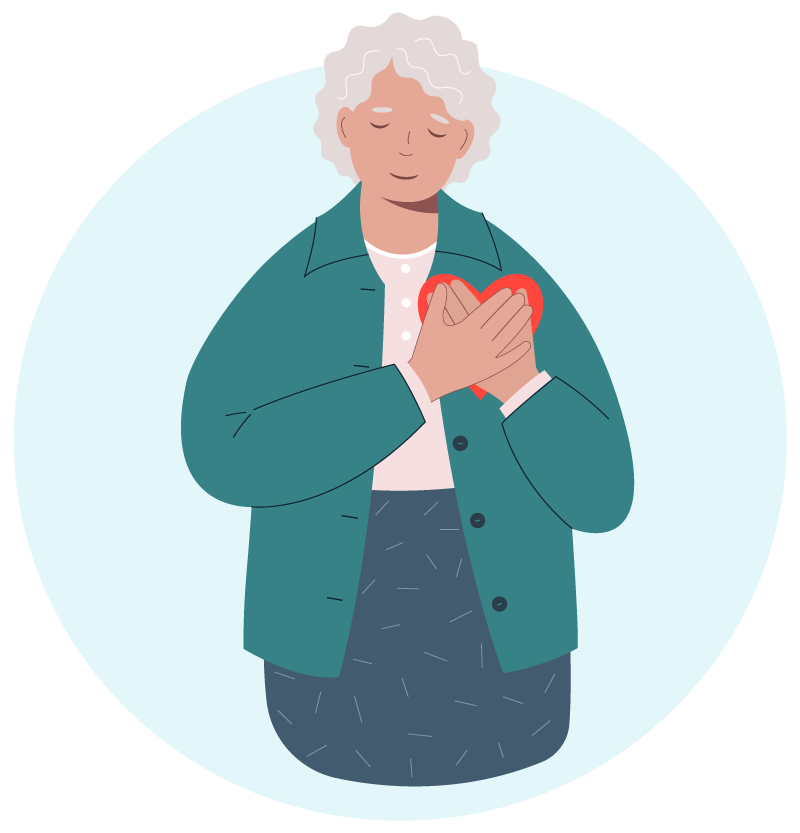February is Heart Health Month and February 7 – 14 is Congenital Heart Disease Week.
A congenital heart defect (CHD) is a structural problem (or defect) in the heart that is present at birth. There are over 40 types of congenital heart defects. They happen very early in a pregnancy, often before a woman even knows she is pregnant.
Before research and the development of treatments, they were once considered a childhood disease with limited life expectancy. Over the last 50 years, developments in diagnosis, surgical techniques, and in newer, more advanced procedures have greatly improved survival rates into adulthood and old age.
CHD is the most common type of major birth defect affecting one in 80-100 Canadian newborns. There are a wide variety of heart defects, each requiring different levels of intervention and monitoring. They can involve heart walls, heart valves, and the arteries and veins near the heart. CHD can also disrupt the normal flow of blood through the heart.

There are an estimated 257,000 Canadians with congenital heart disease. Of these, two-thirds are adults. At least half face the prospect of possible complications, surgery, and/or premature death. There are far fewer resources allocated for the care of adult CHD patients than other cardiac patients. As a result, wait times for clinical visits and surgical intervention can be much longer than for other cardiac patients. However, there are also many excellent recovery stories that exemplify what happens with great healthcare.

Meet Jennie – she was born with a ventricular septal defect, more commonly known as a hole in the heart. When she was six, she underwent eight hours of surgery to repair it. It worked well and, under difficult circumstances, she survived.
At eight, together with her younger sister, she was adopted into a permanent home from foster care. In her new home, her health continued to improve, and she grew up to become very successful in her career and have three sons, none with heart issues.
However, her heart problems returned in adulthood to confront her as she developed endocarditis, a known problem for people with congenital heart defects; again, she survived and flourished with medical attention. Eventually, she would also need a pacemaker installed, but not before she overcame cancer, twice.
Today, happily healthy and retired from the public service, she works for one of her sons and is a loving grandma to five.

The entire month of February is dedicated to all types of heart health, help for which is provided by different charities. While congenital heart disease is one area of concern, Heart & Stroke, a Federated Health Charities participating charity, provides support to those experiencing heart attack, heart disease, and strokes, as well as to their loved ones and caregivers by providing resources and information. To support the work of Heart & Stroke during Heart Health Month, make a donation through Federated Health charities.






